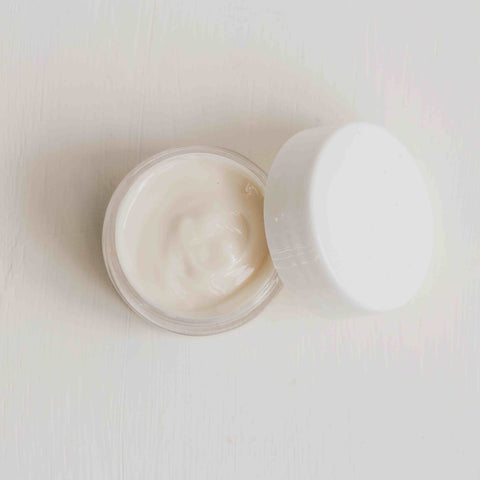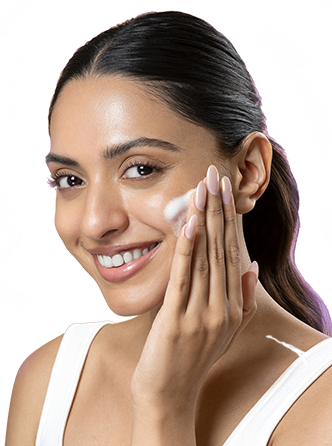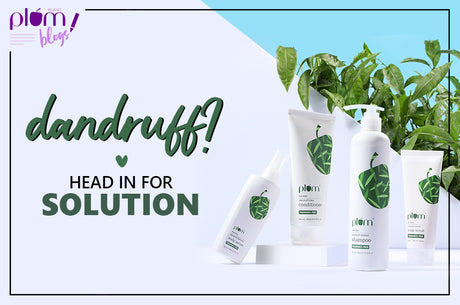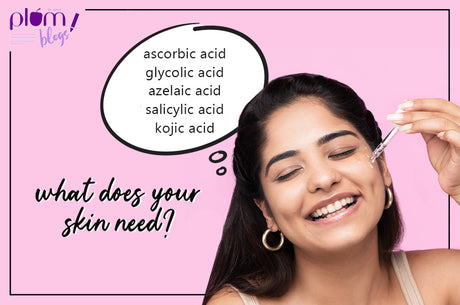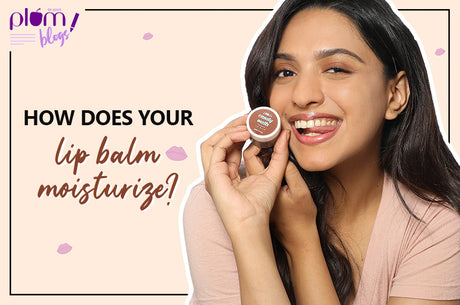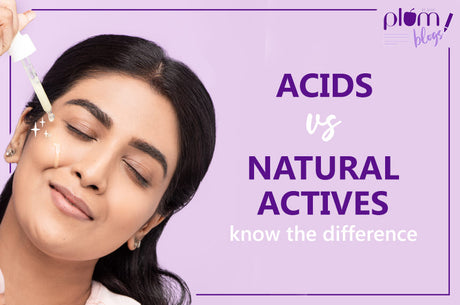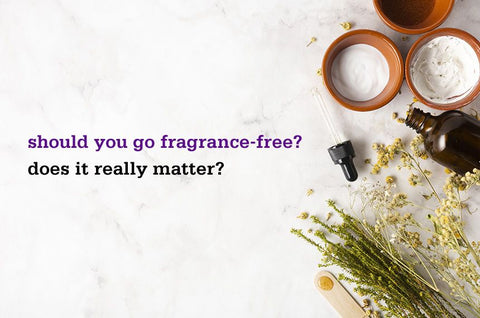
Hello lovely plumsters! Today we’re taking a closer look at the use of fragrance in beauty products. Are fragrances in skincare & beauty products always harmful? Is “fragrance-free” necessarily safer than a product with added fragrance? Let’s find out!
The basics

You perhaps know that most ingredients in beauty products already have an innate odour (smell) of their own.
And eventually how the product smells depends on 2 things:
a) how the ingredients interact
b) how their odour profile changes over time (imagine if it’s in a jar that’s opened and closed).
You then have 3 choices when it comes to odour management:
1. Accept as it is (truly fragrance-free)
2. “Mask” the odour (also touted as “fragrance-free”- more on this below)
3. Use a fragrance to give a lasting, pleasant odour to the product
Now let’s see the “for” & the “against” when a formulator goes for these choices!
Choice 1:
Accept as it is (truly fragrance-free)
For:
Going “naked” on fragrance is great for people with extreme sensitivity to any scent, and who like to keep it as natural as possible.
Against:
Most mixtures of things don’t smell, um, nice over a period of time. And a product you don’t look forward to using is perhaps something you’ll stop using. Which defeats the whole purpose of skin care and hair care - which is to take active care of what’s been naturally bestowed on you. And fragrances are known to affect mood and positivity – important these days!
Choice 2:
Mask it (and retain a “fragrance-free” tag)
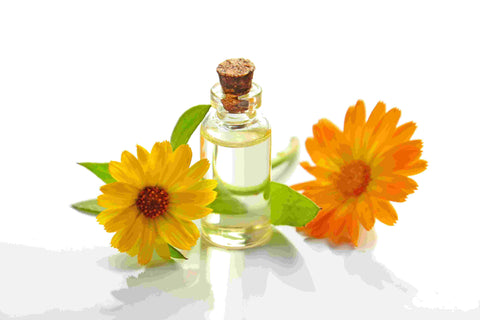
You could have the best of both worlds and go fragrance-free by either adding natural essential oils or natural/synthetic masking agents that don’t technically qualify as fragrance.
For:
A good choice for people with extreme allergies to scents, and those that have a preference for the “fragrance-free” tag. And it’s great marketing, obviously. But is this option always safer? Not always. See below.
Against:
Here’s what stacks up against this option:
1. Essential oils can be potentially irritating to a lot of people. They are a complex mixture of potent phytochemicals
2. There’s nothing to say that masking agents will always be necessarily safer to everyone, compared to “fragrance”
3. We still don’t overcome the odour problem, fully
Time to understand “fragrance” better!
Choice 3:
Use a fragrance
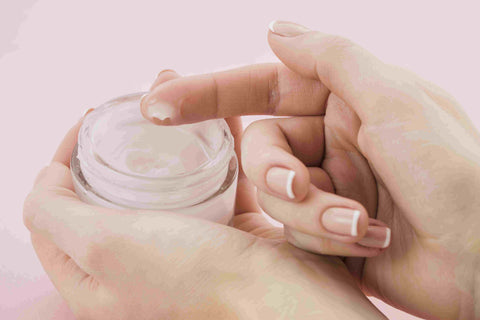
For:
For many of us, mild fragrances in skincare products make them more delightful to use on a regular basis. It brings about a sense of well-being, feeling good and feeling confident – all of which are important!
Against:
However, some question the use of fragrances in products nowadays. “Will this product almost certainly irritate my skin because it contains fragrance?”
Our answer: Not always
Although the exact list of ingredients in “fragrance” is conventionally a trade secret of the companies that make these compounds, and hence not disclosed, there are quite a few safeguards in place:
1. The International Fragrance Association (IFRA) is the global representative body of the fragrance industry. Using scientific research, an extensive “safe list” of over 4,000 compounds that can be used in synthetic fragrances has been drawn up. Fragrances that are “IFRA compliant” are perfectly safe for use in cosmetics. Plum insists on IFRA certification from its fragrance suppliers.
2. One of the known “iffies” in fragrance (and a lot of other ingredients) is phthalates. They are suspected to cause reproductive damage over the long term. Plum only sources phthalate-free raw material for its products – right from when we began!
So, what should I do?
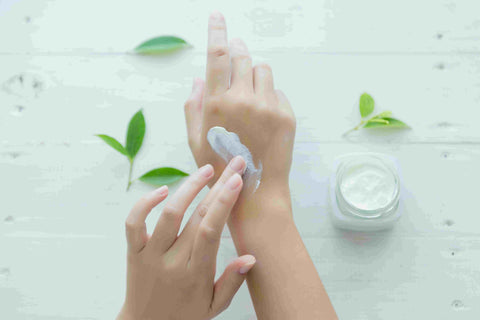
Here’s one way to go about choosing products:
1. If you don’t have extreme sensitivity, check with your brand(s) about whether they use IFRA-compliant fragrances, and whether their fragrances are phthalate-free
2. If you have extreme sensitivity to scents, pick mildly scented products or those with masking agents. Remember, essential oils may not always be safe for you
3. In any case, always patch test any product before widespread application
Related products:
Wild Cherries & Kiwi rangeVienna Coffee range
Love & Limone range
Berry Sorbet range


